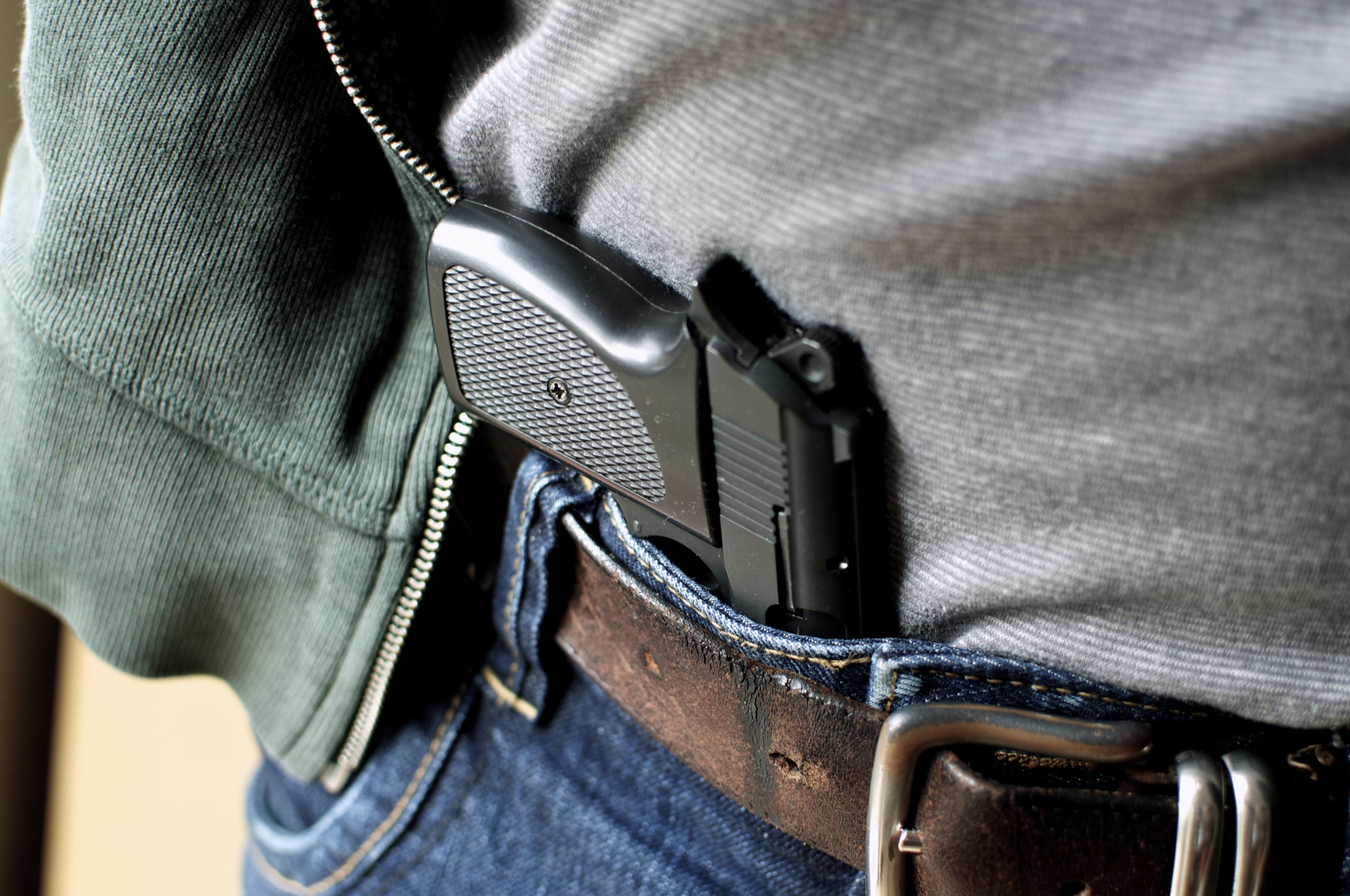Betsy DeVos, Donald Trump’s nominee for Secretary of Education, drew widespread mockery when she said during her confirmation hearing on Tuesday that schools in Wyoming might need firearms for protection “from potential grizzlies.” Less attention was given to the substance of her remarks, in which she signaled her support for reversing the 27-year-old federal law that bars firearms in public elementary and secondary schools.
DeVos’s comments are the latest example of national Republicans embracing an idea that seemed radical when championed by Wayne LaPierre, the head of the National Rifle Association, as an alternative to new gun restrictions following the Sandy Hook school shooting. Trump himself came out against school gun bans as a candidate, when he compared the policies to “offering up candy to bad people.” Though the incoming president lacks the constitutional authority to unilaterally reverse the standing federal statute “on day one,” as he promised, Republican legislators on Capitol Hill are taking steps that could clear the way for more firearms in the nation’s classrooms.
“I’m worried about it,” said Senator Dick Durbin, an Illinois Democrat who, as the Minority Whip, is responsible for counting votes in his caucus. “It’s unpopular, but it’s not out of the question when it comes to the NRA agenda.”
Trump takes office today with House Republicans having already filed two proposals for gutting the 1990 Gun Free School Zones Act, which bars guns in and around schools while allowing states and localities to make exceptions for some firearms owners. Representative Thomas Massie of Kentucky has introduced a bill that directly repeals the standing law. The second measure comes from Representative Richard Hudson of North Carolina. His bill, which is primarily focused on establishing national reciprocity for state concealed-pistol permits, also includes a provision turning over authority for setting rules for guns in schools to state and local officials.
Hudson’s plan already has 132 cosponsors, and both bills have been referred to a House Judiciary subcommittee, an initial legislative step.
“It certainly does seem like momentum is building,” said Joseph Blocher, a Duke University Law Professor who writes on Second Amendment jurisprudence.
The push to scrap the Gun Free School Zones Act is part of a series of gun law overhauls that Trump and congressional Republicans are seeking. Hudson’s bill would require all states to recognize the gun-carrying standards of other states (including those that do not mandate permits for the practice). Another measure, backed by Donald Trump Jr., would deregulate the sale of gun silencers. Probable Attorney General Jeff Sessions has promised to be tough on “criminals who use guns in committing crimes,” indicating a possible revival of a largely abandoned program applying stiff federal sentences for illegal firearms possession.
Proposals to allow guns in schools are popular among Republican voters. An October CBS/New York Times poll found that 64 percent of GOP members supported arming more teachers. But changes to the federal ban would likely meet resistance from the public at large.
The same CBS/New York Times survey found that 57 percent of all respondents opposed allowing more school officials to carry firearms. Such numbers help explain why the large majority of state-level bills to ease restrictions on guns in schools have failed. It may also account for why Hudson has avoided publicizing the provision in his reciprocity plan that would create a way around school gun bans. No guns-in-schools proposals have yet been offered in the new Senate, where Democrats maintain filibuster power, and Massie’s proposal so far lacks cosponsors.
The Gun Free School Zones Act states that “it shall be unlawful” for an individual to possess a gun “at a place that the individual knows, or has reasonable cause to believe, is a school zone,” defining that zone as within 1,000 feet of school property. But the law leaves substantial leeway, allowing exceptions for people with state or local licenses; for on-duty law enforcement officers; or for use in a program approved by the school district or under a contract the school agrees to, such as with a security company. Nine states now allow people with concealed-carry permits to carry guns in schools, while others have laws more restrictive than the federal ban.
Supporters of the federal law say its repeal would substantially weaken protections for students.
“It’s kind of like a baseline or a lowest common denominator,” said Laura Cutilletta, senior staff attorney at the Law Center to Prevent Gun Violence.
Voiding the federal prohibition, for instance, would abruptly make carrying guns around children as they arrive for class or head home for the day legal in the majority of states that do not have their own statutes addressing gun possession within 1,000 feet of educational facilities.
The push for guns in schools is part of a national effort by gun rights advocates to normalize the possession of firearms in public places: College campuses, national parks, bars, restaurants, libraries and elsewhere.
“What would save more children’s lives: closing loopholes and keeping deadly weapons away from dangerous people, or doing nothing to stop dangerous people from getting guns but allowing teachers and others to walk around with guns in case there’s a need for a shootout in a classroom? Come on,” Senator Chris Murphy of Connecticut, a Democrat, said in a statement to The Trace.
“I hope that even the Republicans in Congress will see that these bills are way outside the mainstream.”


